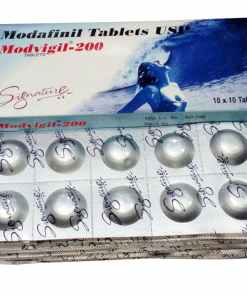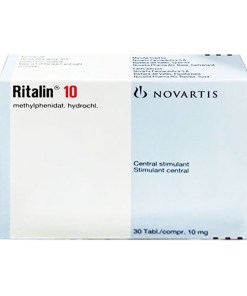Dexamfetamine Tentin 5 mg
€ 80,00
- Product: Dextroamphetamine tablets (dextroamphetamine sulfate)
- Indications: ADHD in children and adults; narcolepsy (according to doctor’s advice)
- Form: Usually immediate-acting tablets or capsules
- Start of operation: 30–60 minutes
- Duration of action: Approximately 4–6 hours per dose (IR)
- Use: 1–3 times daily, as directed
- Packaging: Depending on supplier (e.g. 30/60/90 tablets)
- Prescription: By prescription only; controlled medicine
- Not suitable for: Serious heart problems, glaucoma, hyperthyroidism, severe anxiety/agitation, history of abuse
Bij Groninger Apotheek koopt u met een gerust hart:
Buy Dexamphetamine Tentin 5mg Online
Dexamphetamine is a central stimulant prescribed by doctors for ADHD and sometimes narcolepsy. The active ingredient, dextroamphetamine , increases the availability of dopamine and norepinephrine in the prefrontal cortex . In practice, we often see an improvement in attention, impulse control, and working memory. In narcolepsy, dexamphetamine can reduce excessive daytime sleepiness when a doctor deems it appropriate.
How does dexamphetamine work? Dexamphetamine promotes the release and inhibits the reuptake of dopamine and norepinephrine. This leads to a higher signal-to-noise ratio in brain networks involved in focus and executive functions. Clinically, for many patients, this translates into reduced distractibility, improved task initiation, and increased sustained attention. The effects of immediate-acting forms typically begin within 30 to 60 minutes and last 4 to 6 hours.
Indications and place in treatment
- ADHD: Used after diagnosis and evaluation, often as part of a broader plan involving psychoeducation and behavioral therapy. Dexamphetamine is an option when methylphenidate is ineffective or not tolerated, or based on physician preference and patient profile.
- Narcolepsy: Used selectively to reduce daytime sleepiness; dosage and timing are individually tailored. The drug is not suitable for everyone and requires medical screening, particularly for cardiovascular and psychiatric risk factors.
Dosage and use
- Starting dose: Often 2.5–5 mg once or twice daily, with gradual titration weekly based on response and side effects. Adults may require higher doses than children.
- Dosage schedule: Divide doses between morning and early afternoon. Avoid late doses to reduce insomnia.
- With or without food: Can be taken with food to reduce stomach upset. Very fatty meals may affect absorption.
- Missed dose: Do not take it if it is late; skip the missed dose and resume the next day. Do not take a double dose.
- Long-lasting alternative: If daytime coverage is needed, a physician can switch to an extended-release formulation or a different stimulant regimen.
What can you expect? With the appropriate dose, many patients notice greater mental calm, better overview, and higher task completion within days to weeks. Parents and teachers often report improved academic performance and less impulsive behavior in children. Finding the optimal dose is a personalized approach; mild side effects are common during the initial phase and often diminish after adjusting the dose or with simple lifestyle changes.
Possible side effects: Common: decreased appetite, dry mouth, insomnia, nervousness, headache, abdominal discomfort, increased heart rate or blood pressure. Uncommon: irritability, mood swings, dizziness, tics, sweating. Rare but important: chest pain, shortness of breath, fainting, aggression, hallucinations, ischemic symptoms in fingers/toes (peripheral vasculopathy). Contact your doctor if symptoms are severe or persistent. In children: monitor growth, appetite, and sleep.
Warnings and precautions
- Cardiovascular: A cardiovascular evaluation may be necessary before starting. Use with caution if you have existing heart disease, arrhythmias, or uncontrolled hypertension.
- Psychiatry: May trigger or worsen anxiety, agitation, tics, or mania. Discuss any existing symptoms or family history with your doctor.
- Abuse and dependence: Dexamphetamine is a controlled substance with potential for abuse; use strictly as directed. Store safely, out of reach of children.
- Growth monitoring: In pediatric patients, height, weight, and appetite are part of routine monitoring.
- Driving ability: Evaluate your reactions before driving or operating machinery.
Interactions
- MAO inhibitors: Contraindication; perform a washout as advised by a doctor.
- Antidepressants (e.g. SSRI/SNRI/TCA), antipsychotics, antihypertensives: May require dosage adjustment or monitoring.
- Agents that alter urine pH: May affect elimination (acidic accelerates, basic slows excretion).
- Alcohol and other stimulants/depressants: Use caution; unpredictable effects possible. Share your complete list of medications and supplements with your doctor or pharmacist.
Practical tips from the pharmacy
- Meal planning: Eat a nutritious breakfast and lunch; consider a healthy evening snack to prevent weight loss.
- Sleep: Keep regular bedtimes and avoid caffeine late in the day. Schedule your doses early.
- Monitoring: In the first few weeks, record focus, mood, appetite, sleep, and any side effects to optimize the dose.
- School/work: Align intake times with class or work hours; communicate with your school/employer if relevant.
Frequently Asked Questions (FAQ)
- How quickly does dexamphetamine work? Usually within 30–60 minutes.
- How long does one dose last? On average, 4–6 hours with immediate-release tablets.
- Coffee and energy drinks? Use caffeine in moderation; excessive stimulation can increase side effects.
- What if I don’t notice any effect? Discuss it with your doctor; the dosage, timing, or medication may be adjusted.
- Is daily use necessary? Follow the instructions. Some patients use it during the week and take a break on the weekend; this is a matter of personal preference and should be discussed with the patient.
Important note: This information is for educational purposes only and does not replace medical advice. Use dexamphetamine only as prescribed and as directed by your doctor or pharmacist. Do not stop or change your treatment without consulting your doctor.











Rezensionen
Es gibt noch keine Rezensionen.